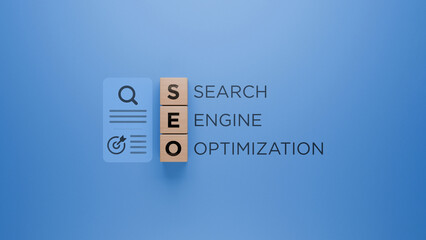Link juice is a term used to describe the amount of authority a webpage passes on to other pages when they are linked. This is an important factor in SEO, as it can improve search engine ranking and drive more traffic.
A page with more inbound links from reputable websites will pass more link juice than one with fewer. It is also important to use relevant keywords in your links. Contact Condori Digital for professional help.
The amount of link juice that a page passes on depends on several factors. These include the relevance of the linking page, the number of links on that page, and whether the link is dofollow or nofollow. It also depends on the authority of the site that links to the page, as well as its trustworthiness. In addition, the position of the link within a page is important; links that appear higher up in the text are more valuable than those hidden away at the bottom.
In order to pass on as much link juice as possible, a page should use a relevant anchor text and include as many internal links as possible. In addition, a page should limit the number of external links and avoid linking to spammy websites. The number of links on a page also affects the potency of link juice, as links that are too dense will detract from the overall quality of the site.
When referring to SEO, the term “link juice” is often used synonymously with PageRank, the original algorithm developed by Google to determine a web page’s credibility and ranking potential based on the quantity and quality of its backlink profile. However, it is important to note that PageRank is only one of hundreds of factors that influence search engine rankings, and it does not guarantee that a website will rank highly for a given query.
There are many misconceptions about how link juice is passed between pages. One of the most common mistakes is assuming that all links carry equal link equity. This is incorrect, as the amount of link juice that a page passes is based on several factors, including the authority of the linking site and the number of other links on that page.
Another mistake is thinking that a link from a high-authority page will automatically boost the page’s ranking in search engines. In fact, the opposite is true; a high-authority page may be able to improve the ranking of a lower-authority site if it links to relevant content. In addition, high-authority sites are typically more selective about the links they share, so they are able to pass on more link juice than lesser-known sites.
Inbound links
The more inbound links a page has, the higher it will rank in search engine results. However, not all inbound links are created equal. Some may be toxic and could damage your site’s SEO. To avoid this, it’s important to monitor your link profile and eliminate any suspicious links. You can do this by conducting regular link audits and disavowing any spammy or harmful links. Another way to improve your website’s performance is by utilizing internal linking. Developing a strategic internal linking structure helps distribute link juice to important pages, enhances user navigation, and increases the SEO performance of different pages within your domain.
The amount of link juice a page receives depends on several factors, including the quality and relevance of its content and the number of outbound links. The link’s location on the page also plays a role. For example, links placed higher up the page tend to receive more equity than those hidden at the bottom of a paragraph. In addition, the link’s attributes (like dofollow and nofollow) can influence its value.
It’s also important to keep in mind that the amount of link juice a page passes on changes over time. For instance, a backlink from a high-authority site will carry more weight than a link from a low-authority site. Furthermore, the authority of the linking page also influences the amount of link juice it passes on.
Link juice is also influenced by the trustworthiness of the linking site and its content. This is particularly true for links from trustworthy sites that offer quality content in your niche or industry. Furthermore, the more relevant a page’s content is to yours, the more link juice it will pass on.
While there are many ways to build Link Juice, it’s important to avoid any black hat tactics that may harm your website’s SEO ranking. For example, buying links or using spammy tactics can get your site banned by search engines and ruin your reputation. To avoid this, it’s best to stick with white hat methods that are ethical and beneficial for your business.
Link equity
Link juice is a term used in the SEO world to refer to the value and authority passed from one web page to another through hyperlinks. Search engines view these links as votes of confidence that a webpage is relevant and important, and use them to determine how well a page will rank in search results. In addition to being a ranking factor, Link Juice is also an important part of building brand credibility and user trust.
The amount of Link Juice that a website passes depends on several factors, including the quality of the linking sites and how contextually relevant the linked pages are. High-quality and authoritative sites typically pass more link juice than less-reputable ones. Furthermore, links from pages within the same domain tend to pass more link juice than those from other domains. In addition, links that are marked as nofollow do not pass link juice.
There are a number of ways to increase the flow of Link Juice, including acquiring backlinks from authoritative websites, participating in social media, guest blogging, and more. The most effective way to do this, however, is through internal linking. This allows you to distribute the link juice of high-authority pages throughout your website, which will ultimately boost the overall SEO performance of your site.
It is also important to keep in mind that the amount of Link Juice that a webpage passes depends on the number and quality of its backlinks, as well as its own authority. For example, a page that has hundreds of links from highly authoritative sites will pass more link juice than a page with few or no backlinks. The location of the links on the page also matters. For instance, links placed in the main content section of a web page pass more Link Juice than those found in the footer or sidebar.
Finally, the type of link determines how much link juice is passed on. For example, follow links will pass link juice to the destination page, while nofollow links do not. The anchor text of the link is also important, as this can influence how Google views the page. For this reason, it is important to avoid using keyword-stuffed anchor text or overdoing link building.
Link building
Link building is the process of acquiring high-quality links to your website from other websites. This increases your site’s SEO performance and boosts its visibility in search engines. There are a variety of ways to build links, including guest blogging, forum participation, and social media marketing. However, it’s important to avoid common link-building mistakes that can hurt your site’s ranking potential. These mistakes include: 1. Using Low-Quality Links
The quality of a link determines how much link juice it passes to the linked page. To maximize the value of your links, opt for a reputable, high-authority source and use relevant anchor text. In addition, avoiding spammy links can improve your credibility and improve your ranking potential in search engine results pages.
2. Using Nofollow Links
Incorrect use of nofollow links prevents search engines from passing link equity to the linked site, which can negatively impact your SEO ranking. Excessive use of nofollow can also be considered spam and could result in a Google penalty. Therefore, it is important to judiciously utilize nofollow links and to avoid using them in the navigation bar or sidebar.
3. Neglecting Internal Links
Effective link building includes optimizing the structure of your internal linking, which distributes link juice to important pages and enhances user navigation. This process also involves identifying and fixing broken links that waste valuable link juice. Lastly, utilizing a 301 redirect for outdated or irrelevant pages can help you transfer the link authority to new pages.
4. Overdoing Black Hat Techniques
Practicing black hat techniques can damage your domain authority and lead to search engine penalties. These practices include indiscriminate link buying, paying for links, and linking to sites with low trustworthiness. These tactics may seem appealing at first, but they can cause long-term damage to your SEO.
A successful link-building strategy requires consistent effort and high-quality content. By focusing on these key aspects, you can build an effective link portfolio and maximize your SEO performance. Moreover, understanding how to measure and analyze your link juice can further enhance your search engine optimization efforts.


